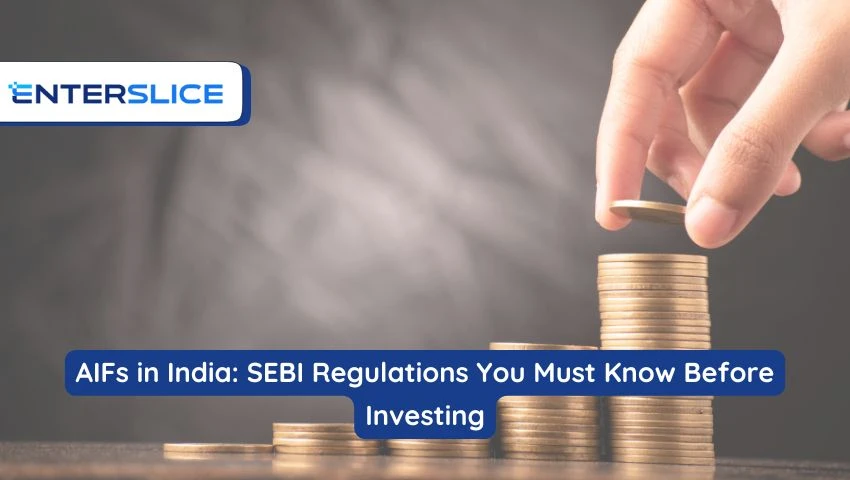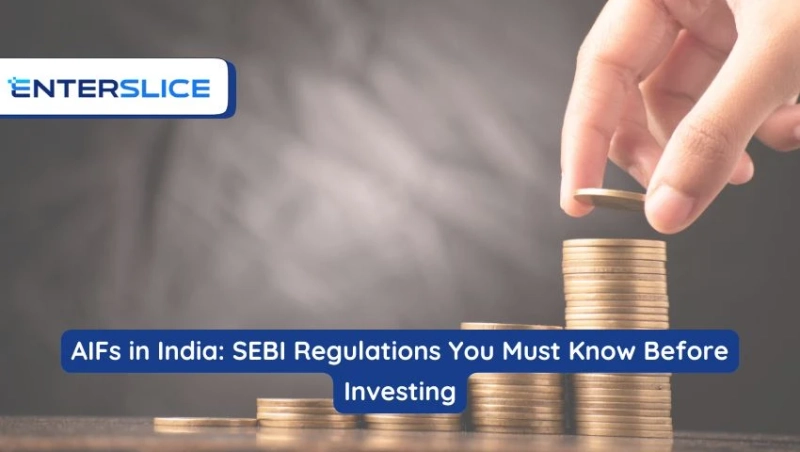Alternative Investment Funds (AIFs) have emerged as a popular investment avenue in India, especially among high-net-worth individuals (HNIs) and institutional investors seeking portfolio diversification beyond traditional equity and debt. Governed by the Securities and Exchange Board of India (SEBI), AIFs offer exposure to hedge funds, private equity, venture capital, real estate, and other alternative asset classes.
However, understanding the regulatory framework is critical before you consider allocating funds to AIFs. SEBI has laid down comprehensive rules to safeguard investor interest, ensure transparency, and enhance market discipline.
Let’s dive deep into SEBI’s regulations for AIFs in India and what you, as an investor, must know before committing capital.

What Are AIFs?
Alternative Investment Funds (AIFs) are privately pooled investment vehicles that collect capital from sophisticated investors for investing according to a defined investment policy. These funds are not covered under conventional fund categories like mutual funds or collective investment schemes.
AIFs in India are regulated under the SEBI (Alternative Investment Funds) Regulations, 2012, and are broadly categorized into three types:
- Category I AIFs include venture capital funds, social venture funds, SME funds, and infrastructure funds. These are perceived to have positive spillover effects on the economy.
- Category II AIFs: Private equity funds, debt funds, and other funds that don’t fall under Category I or III. They do not undertake leverage or borrowing other than to meet day-to-day operational requirements.
- Category III AIFs: Hedge funds or funds that employ diverse trading strategies, including leverage, to generate returns over the short or medium term.
Key SEBI Regulations on AIFs (As of 2025)
1. Minimum Investment Criteria
SEBI mandates a minimum investment of ₹1 crore per investor (reduced to ₹25 lakh for accredited investors). This regulation ensures that only sophisticated investors with a higher risk appetite participate in these funds.
2. Investor Eligibility
Only qualified investors are allowed to invest in AIFs. These include:
- Individuals with a high net worth (HNIs)
- Corporates
- Institutions like banks, NBFCs, and family offices
- Accredited investors as per SEBI’s accreditation guidelines
Retail investors are not permitted to invest in AIFs directly.
3. Fund Structure and Tenure
AIFs are required to be structured as trusts, companies, limited liability partnerships (LLPs), or body corporates.
- Category I and II AIFs must have a minimum tenure of 3 years.
- Category III AIFs can be open-ended or closed-ended.
AIFs must clearly define their tenure, lock-in period, and redemption policies at the time of fundraising.
4. Fund Manager Requirements
The sponsor or manager of an AIF must:
- Have a clearly defined investment policy
- Contribute a minimum sponsor commitment of 2.5% of the corpus or ₹5 crore (whichever is lower) for Category I and II AIFs
- For Category III AIFs, the sponsor/manager must invest 5% of the corpus or ₹10 crore, whichever is lower
- Be registered with SEBI and comply with all reporting, disclosure, and fiduciary duties
5. Leverage and Borrowing Norms
- Category I and II AIFs are not permitted to be leveraged except for operational requirements, subject to limits.
- Category III AIFs may employ leverage, but they must follow risk management practices, disclosure norms, and leverage limits as defined by SEBI.
6. Transparency and Disclosures
AIFs are required to maintain transparency with investors regarding:
- Financial statements
- Portfolio valuations
- Fund performance
- Material changes in fund strategy or structure
Quarterly and annual reporting to SEBI is mandatory.
7. Valuation Norms
- AIFs must carry out valuation of their portfolio assets by an independent valuer at least once every six months.
- For funds with complex assets (like private equity or real estate), independent third-party valuation is essential to avoid conflicts of interest.
8. Compliance and Auditing
- SEBI requires AIFs to appoint a custodian (especially for Category III) and conduct annual audits.
- Funds must comply with KYC/AML guidelines, investor redressal mechanisms, and cybersecurity practices, especially in light of increasing digital transactions.
Also Read: Documents Required for Recovery of Shares from IEPF
Risks Involved in AIF Investments
While AIFs offer potentially higher returns and diversification, they come with certain risks:
- Illiquidity: Most AIFs have a lock-in period, meaning your funds may be tied up for years.
- High Fees: Management and performance fees can be higher than those of mutual funds.
- Regulatory and Market Risk: Despite SEBI’s oversight, these are relatively less regulated compared to public funds.
- Transparency: While disclosure norms exist, real-time transparency is less than traditional investments.
Hence, it's essential to assess your financial goals, risk tolerance, and the fund manager's track record before investing.
Recent Updates and Amendments (2024–2025)
Some key updates from SEBI that investors should be aware of:
- Accredited Investor Regime: SEBI introduced guidelines for identifying accredited investors who can invest at reduced minimum thresholds.
- ESG Investing for AIFs: AIFs promoting ESG strategies must now disclose ESG-related practices, goals, and impact metrics.
- Side Pocketing in Category III AIFs: Allowed for better risk isolation of stressed or illiquid assets, especially in volatile market environments.
Should You Invest in AIFs?
AIFs are best suited for experienced and wealthy investors who:
- Want exposure to alternative assets like private equity, venture capital, or hedge funds
- Can bear higher risk and longer investment horizons
- Seek portfolio diversification beyond public markets
Before investing, consult with a SEBI-registered investment advisor or wealth manager who understands the nuances of the AIF landscape.
Also Read: Challenges Faced During the NBFC Registration Process
FAQs: AIFs and SEBI Regulations
1. Can retail investors invest in AIFs in India?
No. As per SEBI regulations, AIFs are designed for high-net-worth individuals and institutional investors. The minimum investment requirement is ₹1 crore, making it unsuitable for retail investors.
2. Are returns from AIFs guaranteed?
No. AIFs are market-linked and do not offer guaranteed returns. Their performance depends on the asset class, fund strategy, and market conditions.
3. What is the tax treatment of AIF investments in India?
Taxation depends on the AIF category:
- Category I and II AIFs enjoy a pass-through status, meaning investors are taxed as if they held the assets directly.
- Category III AIFs are taxed at the fund level, and gains are subject to applicable capital gains or business income tax.


